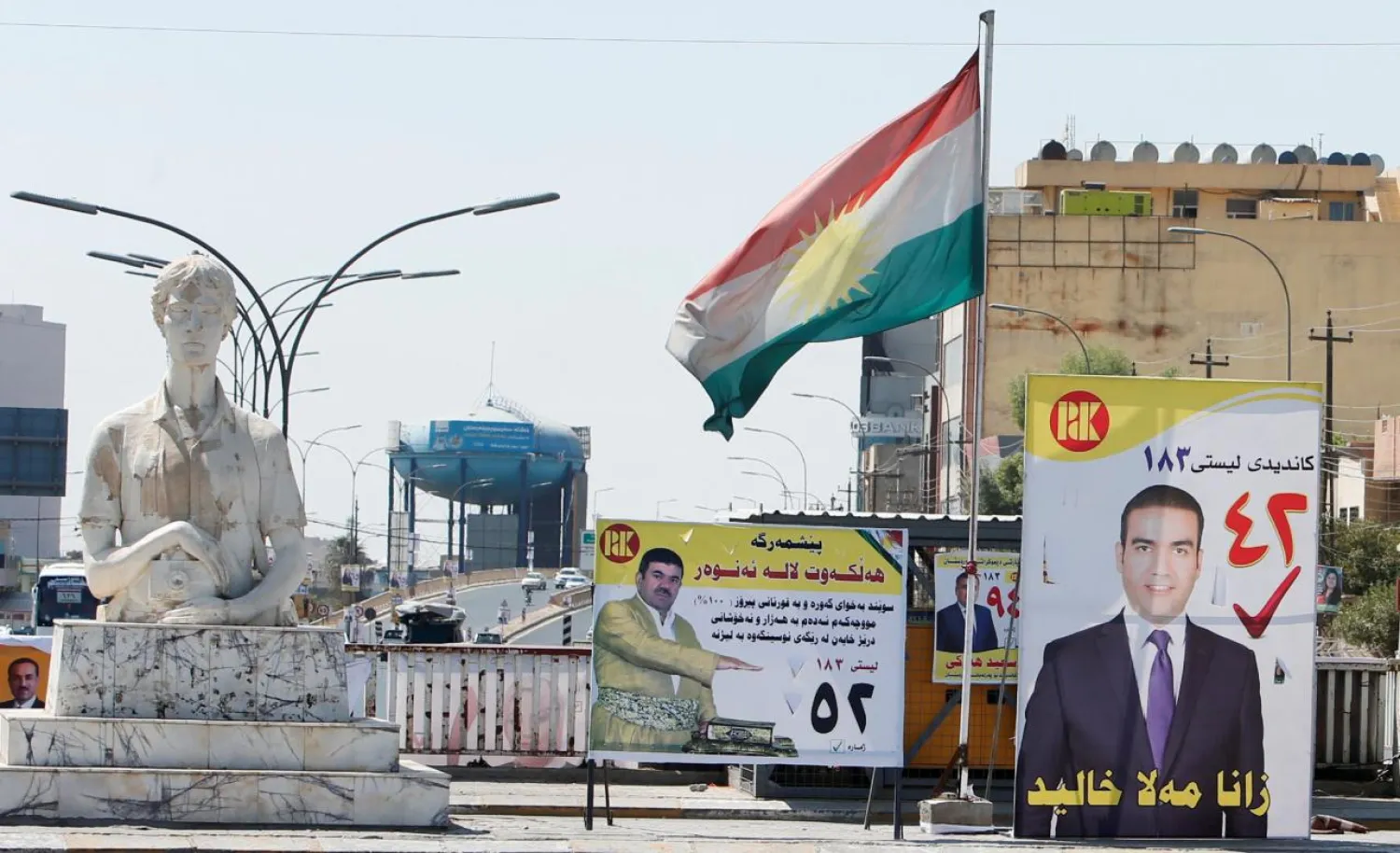Campaigns for the upcoming parliamentary elections kicked off at midnight Monday in a calm atmosphere in the towns and cities of the Kurdistan region of Iraq.
Streets were decorated with images and posters of the candidates of the two ruling parties in the region, the Kurdistan Democratic Party led by Masoud Barzani and the National Union, which this time used a selection of young and media leaders in an attempt to reap the largest number of votes.
As for the four opposition groups, only the posters of the Change Movement candidates were seen on the streets, while the Islamic parties such as the Union, the Jamaa and the Islamic Movement were absent despite announcing their participation in the elections scheduled for the end of September.
The Coalition for Justice and Democracy, led by the well-known politician Barham Saleh, announced in advance its boycott of the electoral process over voter lists and fears of repeated frauds that marred the Iraqi parliamentary elections last May.
Kurdistan’s political parties will compete for 100 seats in the regional parliament, which consists of 111 seats, including 11 seats reserved for national and ethnic minorities in the region.
Campaigns are expected to last until September 28, according to a statement by the Electoral Commission in the region, which has set, in cooperation with the concerned municipalities, new conditions and controls for electoral campaigning, identified specific advertising sites within the cities, and also approved huge fines amounting to around 3 million Iraqi dinars for violators.
However, on the first day of the campaign, a large number of violations was recorded, as posters of the candidates of the ruling parties were seen over pedestrian bridges, traffic signs, electricity poles and trees in the squares of Erbil.
According to the candidate for the Kurdistan Democratic Party, Ali al-Faily, electoral campaigning was equally available to all candidates without exceptions, but the financial means and potentials might vary from one candidate or party to another.
“I believe that these elections are crucial and decisive for the people of Kurdistan, as they are the first after the end of the war on terrorism, represented by ISIS, and come after the historic referendum on the fate of Kurdistan, in which the Kurdish people expressed their opinion with the utmost freedom and democracy,” Faily said in remarks to Asharq Al-Awsat.









